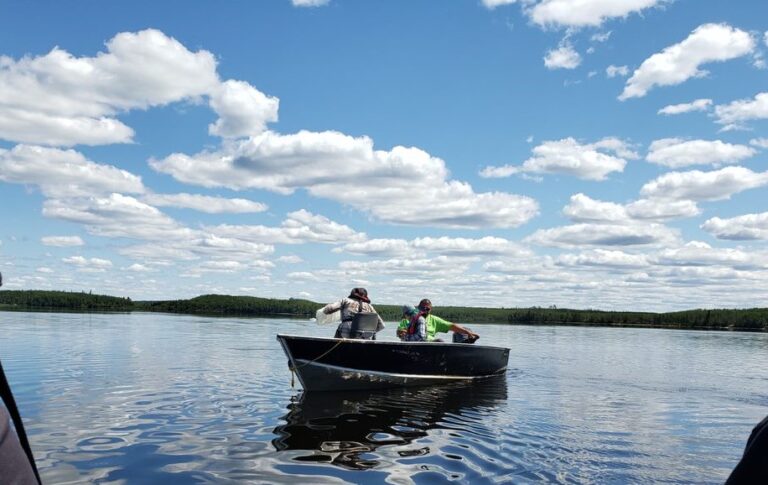
There are multiple benefits to participating in the Guardians initiative:
- Observing what is happening on the land and making a lasting of record will ensure that each Matawa First Nation can preserve their traditional knowledge and evaluate new information that is gathered.
- The data that is inputted by community members to the Environmental Knowledge Lodge (GeoHub) can be analysed by the GeoHub for each community. The analytics can provide individual First Nations with information to help them evaluate the health of the environment and make plans to mitigate potential negative impacts of changes on the land.
- As the information collected by the Guardians and entered into the Knowledge Lodge grows, it can be paired with western science data to get a full picture of what is happening in the environment.
- Baseline data about land, water, vegetation, wildlife, weather, air quality, as wells as other values can be compared to emerging and future data to understand what changes are taking place in the environment.
(Image: Kids in shorts and t-shirt with bucket showing an adult a frog, adult taking a photo with a tablet) - Community science ensures that the information in the Knowledge Lodge is community based and comes from the intimate relationship community members have with the land.
- Communities can choose to share information to explore the regional environment and work together to monitor shared lands and waterways.
- Communities will have their own data with which they can challenge, or collaborate with, government and industry. They will have valuable information with which to partner with academia and other third parties for studies and research about their First Nations lands and waterways.
- The information collected by River Guardians and stored in the Environmental Knowledge Lodge will grow year by year, giving communities a baseline with which to compare future data. This will be critical to understanding and demonstrating the impacts of climate change and resource development on the environment, and on the communities and their traditional activities.